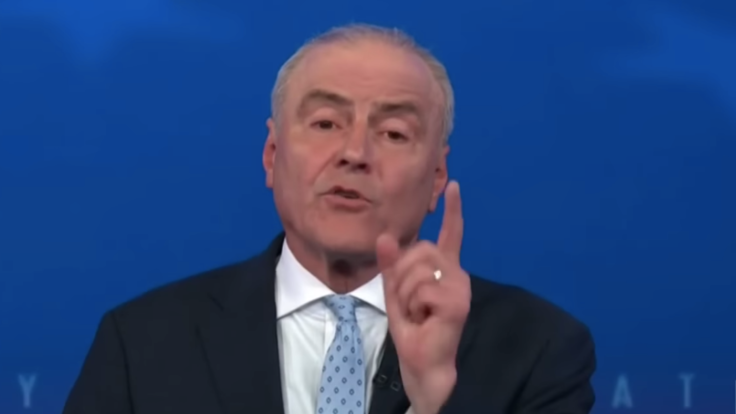MAGA Revolt Erupts: Curtis Sliwa Slammed As 'So Lame' After Refusing To Call Trump The Best President

A new fissure has erupted within the MAGA movement after Republican mayoral candidate Curtis Sliwa refused to hail Donald Trump as the 'best president,' prompting outrage among the former president's loyalists and sparking a wave of infighting within the GOP.
The backlash underscores the enduring test of loyalty to Trump that continues to define Republican politics even in local elections — and highlights the risks facing candidates who deviate from MAGA orthodoxy.
The Controversy: 'So Lame'
During a campaign stop last week, Sliwa was asked if he considered Trump the greatest president. His measured reply — declining to give Trump that title — quickly ignited fury among right-wing commentators. One MAGA influencer dismissed his response as 'so lame,' accusing Sliwa of political cowardice.
His attempt to project independence has instead drawn accusations of betrayal from Trump-aligned conservatives who see unwavering praise for the former president as a loyalty test.
Sliwa has long had a tempestuous relationship with Trump. He publicly acknowledged that he has not spoken with Trump in over a decade, according to the New York Post.
In a recent interview, Sliwa said their communication broke down due to his critical and satirical commentary on Trump's finances and political behaviour.
By refusing to label Trump the best president, Sliwa appears to be signalling independence from the MAGA orthodoxy--a course that has drawn sharp backlash from Trump-aligned voices who see his stance as disloyal.
GOP Pressure Mounts Over Mayoral Strategy
The uproar comes amid mounting pressure for Sliwa to withdraw from the mayoral race to consolidate anti-socialist voters behind a single challenger to frontrunner Zohran Mamdani.
Trump has publicly encouraged non-Mamdani candidates to step aside, implicitly favouring former Governor Andrew Cuomo. But Sliwa has resisted, according to Associated Press.
In recent weeks, Sliwa alleged he was offered up to $10 million in bribes by wealthy actors backing Cuomo, in exchange for his exiting the race.
He blasted the offers and declared himself 'not for sale.' He also emphasised that a Trump endorsement might hurt more than help him.
Former New York Mayor Rudy Giuliani recently endorsed Sliwa, rejecting pressure to back Cuomo. In doing so, Giuliani attacked both Mamdani and Cuomo, saying Sliwa represented law-and-order values.
The endorsement was widely seen as a counterpunch in intra-GOP infighting, particularly as Trump has remained publicly noncommittal toward Sliwa's candidacy, according to New York Post.
Nonetheless, Trump has not held back from mocking Sliwa publicly. In September, the President dismissed Sliwa as 'not exactly prime time' and ridiculed the candidate's well-publicised plan to house cats in Gracie Mansion.
Sliwa, unfazed, defended his animal-welfare proposals and accused Trump of focusing on distractions rather than issues, as reported by AP News.
Stakes for GOP and Race
Sliwa's distancing from Trump comes at a high-risk moment for the GOP in New York City. Polls show he lags far behind Mamdani and Cuomo.
Some Republicans view Sliwa's stubborn resistance as jeopardising the party's chances to block a socialist mayoral victory.
Furthermore, the dispute over whether to flatter Trump reflects deeper fault lines in the GOP about loyalty, independence, and tactical calculation in the Trump era.
Sliwa's reluctance to anoint Trump as the 'best' president may appeal to moderate or sceptical voters--but it risks alienating the MAGA base and opening him to attacks from within his own camp.
As the race heads into its final stretch, the question looms: will Sliwa pivot toward a more MAGA-friendly posture or double down on his maverick branding?
Either path poses political peril in a city where Trump's influence remains formidable, even among Republicans running against him.
Outlook: Defiance or Conformity?
As election day nears, Sliwa faces a critical choice — to double down on his maverick image or pivot toward Trump's base. Either decision could define not just his campaign but the broader trajectory of Republican identity in the post-Trump era.
For now, his message remains defiant: 'I respect what Trump did, but New York needs independence — not imitation.' Whether voters reward that independence or punish it remains to be seen.
© Copyright IBTimes 2025. All rights reserved.





















